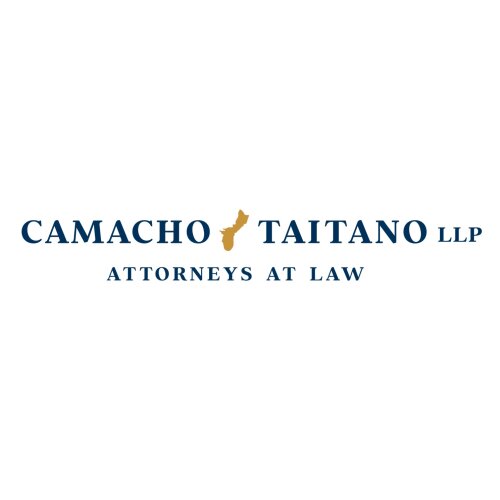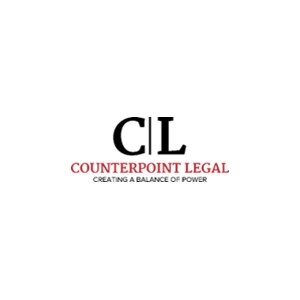Best Education Law Lawyers in Hagåtña
Share your needs with us, get contacted by law firms.
Free. Takes 2 min.
List of the best lawyers in Hagåtña, Guam
About Education Law in Hagåtña, Guam
Education Law in Hagåtña, Guam primarily deals with the regulations and policies governing educational institutions, students, and educators within the region. As a U.S. territory, Guam follows many federal educational standards, but also has specific local ordinances and policies designed to address the unique cultural and demographic characteristics of the island. Education law focuses on issues such as student rights, school governance, faculty appointments, educational standards, and anti-discrimination practices. The Department of Education in Guam oversees public schools, while private and charter schools may have additional regulatory oversight.
Why You May Need a Lawyer
There are numerous situations where individuals or institutions may require legal assistance in the field of education law. These can include disputes over student rights, special education accommodations, disciplinary actions, and teacher employment issues. Parents may need guidance navigating the complex regulations surrounding special education services, or in cases of bullying and harassment within schools. Additionally, schools may seek legal counsel to ensure compliance with both federal and local regulations, and to address litigation related to governance and policy implementation. Legal help can also be necessary for addressing discrimination claims based on race, gender, disability, or religion within educational environments.
Local Laws Overview
Local laws in Hagåtña, Guam relevant to education law include regulations established by the Guam Department of Education, as well as federal laws applied within the territory. Key aspects of these laws involve the implementation of the Individuals with Disabilities Education Act (IDEA), which mandates special education services, and Title IX, which addresses gender discrimination. Additional important aspects include the enforcement of safe school environment laws, policies on language instruction for non-native English speakers, and regulations protecting student privacy and data. These laws are crafted to ensure that educational environments are inclusive, equitable, and meeting high quality standards.
Frequently Asked Questions
What are my child's rights in special education services?
Under IDEA, children with disabilities are entitled to free appropriate public education tailored to their individual needs. This includes the development of an Individualized Education Plan (IEP) and access to necessary accommodations.
How does Title IX apply to schools in Guam?
Title IX prohibits discrimination based on sex in educational programs or activities receiving federal financial assistance. This includes protections against sexual harassment and unequal athletic opportunities.
What should I do if my child is being bullied in school?
Document incidents and notify school authorities. Schools are required to investigate and address bullying allegations under local and federal policies ensuring a safe educational environment.
Can a school discipline my child without notifying me?
Schools typically have specific policies outlining parental notification requirements prior to disciplinary actions, especially if the consequence is suspension or expulsion. It's essential to refer to the school's code of conduct.
What are the language instruction policies for non-native English speakers?
Schools are required to provide support to students for whom English is not the first language, employing methods such as ESL (English as a Second Language) programs to help students achieve proficiency.
Are private schools subject to the same laws as public schools?
While private schools may have more autonomy, they must still adhere to certain federal mandates, such as those regarding discrimination and accommodations for students with disabilities.
How can I request an evaluation for special education services?
Parents can request an evaluation from the school district if they suspect their child has a disability affecting their learning. The school must respond in a timely manner and obtain parental consent before proceeding with evaluations.
What legal recourse do I have if my child's educational rights are violated?
Parents may file complaints with the school district, and if unresolved, take legal action or seek mediation. It may also be beneficial to consult an education attorney for guidance.
Can teachers face legal action for classroom conduct?
Yes, teachers may be held accountable for actions that violate district policies, state laws, or federal regulations, particularly regarding discrimination or misconduct.
Are there specific programs for gifted students in Guam?
Yes, schools in Guam may offer programs and services for gifted students, designed to provide enrichment opportunities that cater to advanced learning needs.
Additional Resources
For those seeking further information or assistance, consider reaching out to the Guam Department of Education for guidance on education policies. The Office for Civil Rights, U.S. Department of Education, can provide support on issues like discrimination, while local advocacy groups may offer resources and assistance regarding special education and student rights.
Next Steps
If you require legal assistance in education law, consider consulting with a lawyer specializing in this field. Begin by gathering relevant documentation and information related to your case. You may also contact local bar associations for referrals to qualified education law attorneys. Consulting with educational specialists or advocates can also be beneficial in preparing for legal consultations or proceedings.
Lawzana helps you find the best lawyers and law firms in Hagåtña through a curated and pre-screened list of qualified legal professionals. Our platform offers rankings and detailed profiles of attorneys and law firms, allowing you to compare based on practice areas, including Education Law, experience, and client feedback.
Each profile includes a description of the firm's areas of practice, client reviews, team members and partners, year of establishment, spoken languages, office locations, contact information, social media presence, and any published articles or resources. Most firms on our platform speak English and are experienced in both local and international legal matters.
Get a quote from top-rated law firms in Hagåtña, Guam — quickly, securely, and without unnecessary hassle.
Disclaimer:
The information provided on this page is for general informational purposes only and does not constitute legal advice. While we strive to ensure the accuracy and relevance of the content, legal information may change over time, and interpretations of the law can vary. You should always consult with a qualified legal professional for advice specific to your situation.
We disclaim all liability for actions taken or not taken based on the content of this page. If you believe any information is incorrect or outdated, please contact us, and we will review and update it where appropriate.









